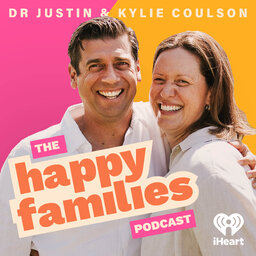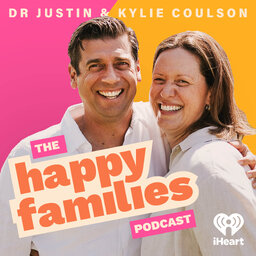#1044 - Q&A: Tearaway Toddlers & Staying in School
Bec, from Sydney, has a 2-year-old who keeps running towards the road when out at parks, playgrounds, and shops. Running away is developmentally normal: little kids love to explore. But it's also very scary! There are four things parents can do to keep their "runner" safe when out and about.
Karen, from Brisbane, asks how to navigate the ongoing challenge of school refusal. Ongoing conversations with both child and school are important when school attendance is a challenge. Dr Justin shares some questions to ask, and four ideas to increase engagement, competence, and confidence for your struggling student.
In this episode:
- Developmental Milestones [Part 2: Toddlers]
- Curious, exploring, developmentally appropriate
- Hunt, Gather, Parent by Dr. Michaeleen Doucleff | Dymocks
- Ongoing conversations on safety
- Solutions to keep child safe
- Pros and cons of giving kids mental health days
- Problematic school avoidance
- Working with the school
- Three basic psychological needs
- Attaching education to child's goals
- Alternatives to school
Related links:
- What To Do When Kids Won't Listen
- How To Help When School Sucks [Webinar]
- School Refusal
- #875 Failed at School, Successful at Life: Ian Steel
Doors are now open to the Happy Families Membership
NEW weekly kids’ ‘Print & Play’ subscription FELT (Fostering Emotional Learning Together)
Subscribe to the Happy Families newsletter
In 1 playlist(s)
Dr Justin Coulson's Happy Families
The Happy Families Podcast with Dr. Justin Coulson is designed for the time poor parent who just wan…Social links
Follow podcast
Recent clips

FAFO Parenting Is Breaking Your Connection
15:19

When All Their Friends Have Phones and You’re Standing Firm
13:17

What Really Happened When I Met the Roblox CEO
18:08
 Dr Justin Coulson's Happy Families
Dr Justin Coulson's Happy Families